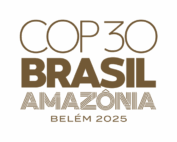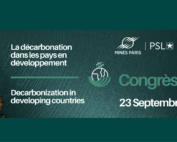Créée en 2008, la Chaire Modélisation Prospective au service du Développement Durable, a été renouvelée en 2013 puis en 2019. Elle est portée par le Centre de Mathématiques Appliquées (CMA) de Mines Paris – PSL et le Centre International de Recherche sur l’Environnement et le Développement Durable (CIRED), laboratoire de l’École des Ponts ParisTech.
L’ADEME, EDF, GRTgaz, RTE, SCHNEIDER ELECTRIC et TotalEnergies sont les partenaires actuels de la Chaire MPDD à laquelle participe également le Ministère de la Transition Écologique et Solidaire via la Direction générale de l’Énergie et du Climat (DGEC). Ils apporteront pendant cinq ans leur soutien financier à ce projet qui vise à pérenniser en France un pôle de modélisation prospective reconnu à l’international et porteur d’outils innovants, afin d’assurer une meilleure maîtrise des dossiers de développement durable dans le monde de l’entreprise et dans les divers lieux de la délibération publique. En adoptant une démarche prospective, la Chaire a vocation à faciliter la prise de décision à partir de l’élaboration de scénarios de long terme portant sur des questions de politique énergétique et climatique, de développement industriel et de choix technologiques et sociétaux. La Chaire MPDD contribue également au rayonnement international des équipes co-fondatrices et de leurs partenaires via l’organisation de colloques internationaux, d’écoles d’été, par une présence renforcée au sein des instances d’expertise internationales comme le GIEC et par le biais de publications de travaux scientifiques.
Cliquez ici pour vous inscrire à notre mailing list.








